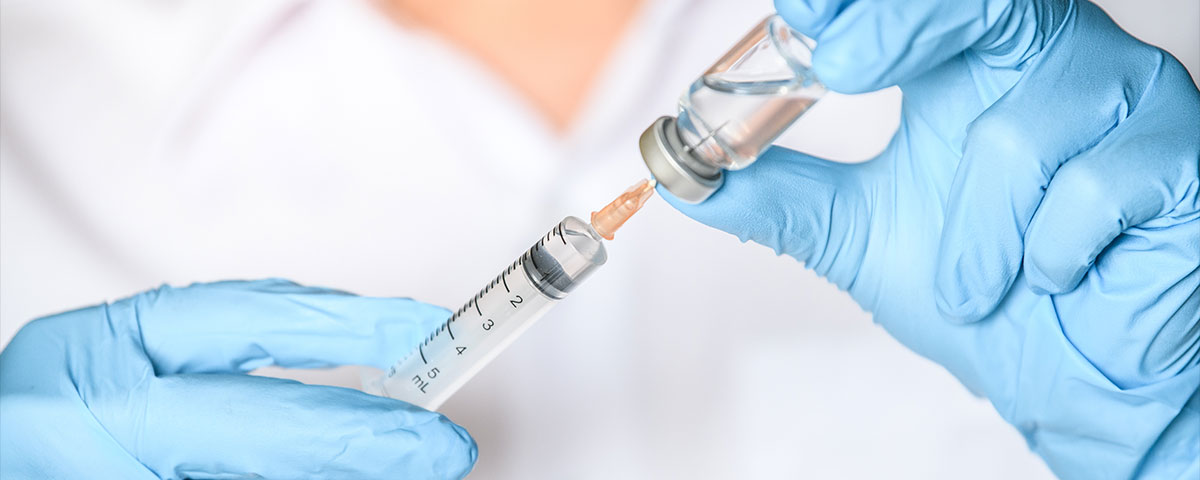Vivitrol is the brand name for a medication called naltrexone, which is often incorporated into addiction treatment.
It’s most effective in individuals who struggle with alcoholism or opioid addiction. Those who experience an opioid overdose can also be helped with this medication. As a drug and alcohol treatment center in Chicago that offers this form of treatment, we wanted to share everything you should know about Vivitrol before using it.
What Is Vivitrol Used For?
Vivitrol is a medication used to treat alcoholism and prevent an opioid relapse following medical detox. Before an individual can receive a Vivitrol shot they must undergo a detox program of 7 to 14 days. The individual must also completely stop drinking alcohol and taking opioids before receiving any form of Vivitrol treatment for the medication to take effect. While this is a non-addictive and non-narcotic medication, Vivitrol injections are only available in one dose, 380 mg, and must be administered by a health care professional.
Do not receive Vivitrol if:
- You still drink alcohol
- You still take opioids
- Have not undergone detox
- Experienced symptoms of opioid withdrawal following Naloxone treatment
- Have opioid withdrawal symptoms
At Banyan Treatment Centers Chicago, our Vivitrol treatment for alcoholism and drug addiction is led by our licensed and experienced medical team to ensure patient health and safety.
How Does Vivitrol Work?
Opioids affect the brain by attaching themselves to opioid receptors in neurons. Once attached, they affect levels of chemicals called neurotransmitters like dopamine that act as messengers between neurons in the central nervous system. Dopamine is naturally released by the brain when we do something we enjoy, like eating. Any excess of this chemical is also recycled. Opioids disrupt this process and cause a build-up of dopamine, which causes extreme feelings of euphoria and pleasure. It’s these side effects that hook users. As an opioid antagonist, Vivitrol works by attaching itself to opioid receptors to block the effects of opioids like heroin or prescription medications. This is not to be confused with Naloxone, which strips the opioid from the opioid receptor to temporarily alleviate the symptoms of an overdose and give time for the individual to get medical attention.
What Happens If You Take Opiates While On Vivitrol?
Trying to counter the effects of Vivitrol with an excessive dose of opioids can be extremely harmful. If you take opiates while on Vivitrol, your chances of injury, coma, overdose, and death increase. After receiving a Vivitrol injection, its blocking effects will slowly decrease over time. A person who struggled with opioid abuse before this treatment may also be more sensitive to these drugs if they take them again. Taking the same dose of opioids after Vivitrol can also lead to overdose and death. Your body will be more sensitive to these drugs after having undergone detox and treatment that specifically targets their side effects. People who received Vivitrol and opiate addiction treatment should avoid these drugs at all costs.
How Long Does Vivitrol Last?
Vivitrol length of treatment depends on the severity of a person’s addiction. How long Vivitrol lasts in a person’s system also depends on how fast their body breaks it down. Vivitrol side effects usually begin within 2 hours of dose. Vivitrol injections are administered once a month and their effects typically last for 30 to 50 days. This is also dependent on its half-life. The half-life of Vivitrol is 5 to 10 days. This means that half of a Vivitrol dose may flush out of a person’s system anywhere from 5 to 10 days.1 It usually takes 5 half-lives for a drug to be eliminated from the body. Regarding detection, Vivitrol can last in blood and saliva for up to 24 hours, in hair for up to 90 days, and in urine for four to six hours.
What You Should Know About Vivitrol Side Effects
Although Vivitrol is not addictive or a narcotic, it can cause severe side effects. Some common side effects of Vivitrol include:
- Depression
- Suicidal thoughts and behavior
- Allergic reactions (pneumonia, skin rash, swelling in the face, chest pains, trouble breathing)
- Nausea
- Sleepiness and drowsiness
- Dizziness
- Nausea and vomiting
- Decrease appetite
- Pain in joints and muscles
- Muscle cramps
- Toothache
- Cold or flu-like symptoms
- Difficulties sleeping
The Vivitrol side effects timeline is as follows:1
- 2 hours after injection: side effects peak
- 2 to 3 days after injection: second peak in side effects
- 7 days after injection: the peak of these side effects slowly declines and the body maintains therapeutic levels of naltrexone for 4 weeks or 30 days
- 30 days after injection: the body reaches a steady state that’s maintained with monthly injections
Recovering from the physical and psychological aspects of addiction is best done with professional help. Vivitrol is only one of the several moving pieces involved in treating addiction. If you’re struggling with alcoholism or drug abuse, call Banyan Chicago now at 888-280-4763 to find out how our substance abuse treatment programs in Naperville can help.
Sources:
Related Reading:









